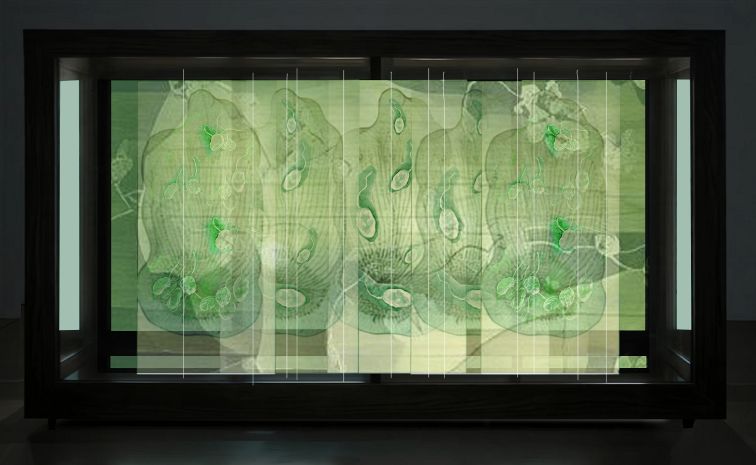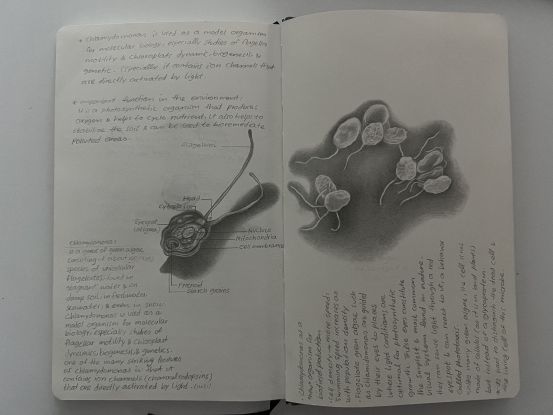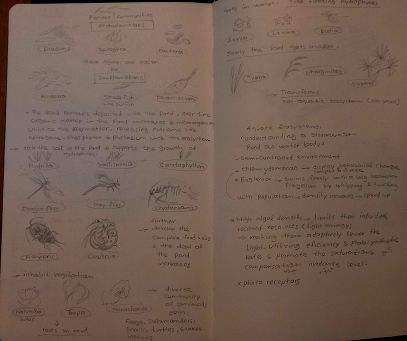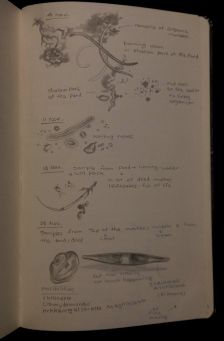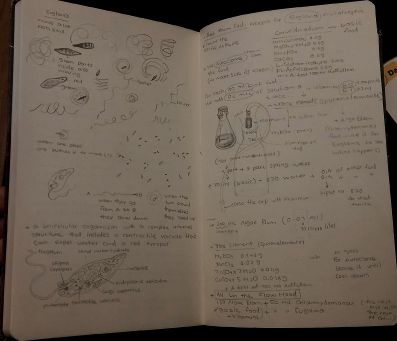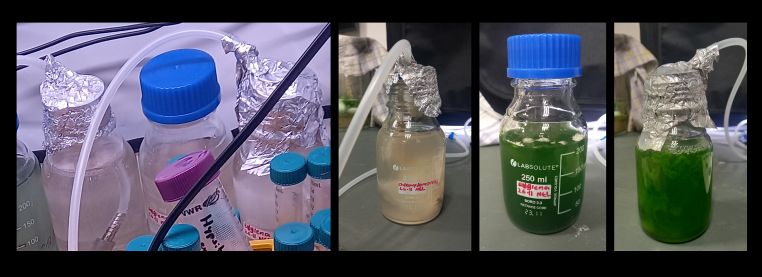mNo edit summary |
|||
| Line 12: | Line 12: | ||
=== Some of the journal's pages: === | === Some of the journal's pages: === | ||
*[[File:Journal2.jpg|frameless|407x407px]][[File:Journal_3.jpg|frameless|341x341px]][[File:Journal_4.jpg|frameless|397x397px]] | *[[File:Journal2.jpg|frameless|407x407px]][[File:Journal_3.jpg|frameless|341x341px]][[File:Journal_4.jpg|frameless|397x397px]] | ||
=== '''Some photo of the Lab-experiments:''' === | === '''Some photo of the Lab-experiments:''' === | ||
[[File:Growing Algaes.jpg|center|thumb|762x762px|First day after algae feeding and three samples after two weeks. Observation: Euglena is green and dense, which shows that it liked the environment, food and light/heat; but Chlamydomonas is dead, and it's mold all over the place: Too much light/warm kills Chlamydomonas.]] | |||
Revision as of 11:06, 15 December 2024
Luminescent dance: the Algae Light spectrum
This project investigates how environment such light and nutrition interacts with Chlamydomonas and Euglena, a type of green algae. The research is to examine how different conditions affect the algae's movement and density. This will involve feeding the algae and keep them in a laboratory condition, collecting data, creating journal with drawings and photos, and providing a brief introduction the findings.
This installation highlights the fragility and sensitivity of some of the most valuable single-celled organisms for humans and the environment. It offers an interactive experience that explores the relationship between the algae and light, providing an educating insights to this tiny-looking detail of science that some biologists dedicate years of their lives to study this essential species.
Installation:
The installation features several parallel plates made of delicate calque paper or sheer fabric moving and overlapping consistent with the light strength. These panels, or free form fabrics display drawn designs of Chlamydomonas, which can project density change by moving the panels through external threads, to be interactive or automatic. The lighting creates a watery ambiance, and ideally, it would be companied with some nature sounds. Incorporating sound could enhance the sensory experience of the installation.
Some of the journal's pages:
